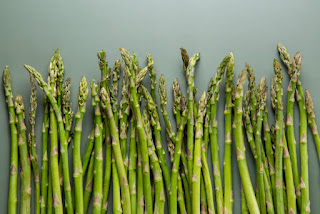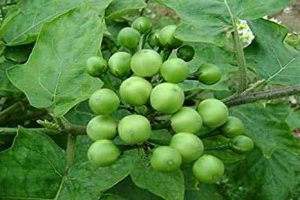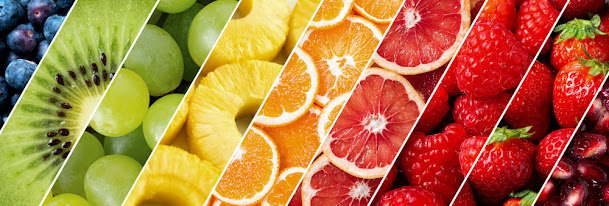A Culinary Delight: Unveiling the Versatility and Nutritional Bounty of Asparagus
Introduction:
Asparagus,
a slender and elegant vegetable, has graced culinary traditions for centuries,
captivating palates with its distinct flavor and numerous health benefits. This
article embarks on a gastronomic journey, exploring the rich history, culinary
applications, nutritional profile, and cultivation of asparagus. From ancient
civilizations to modern kitchens, asparagus has carved its place as a culinary
delight that goes beyond its vibrant green appearance.
Savor freshness at your doorstep – explore a diverse array of farm-fresh
vegetables online in Chennai, delivered to you with just a click.
Historical
Significance:
Asparagus
boasts a storied history, dating back to ancient civilizations such as Egypt,
Greece, and Rome. Revered for its unique taste and purported medicinal
properties, asparagus found its way onto the tables of royalty and aristocracy.
The Greeks even believed that asparagus possessed aphrodisiacal qualities,
adding to its allure in both the culinary and cultural realms.
Culinary Versatility:
Asparagus,
the epitome of culinary versatility, transcends traditional boundaries in the
kitchen. Whether gracing classic dishes like French "Asperges à la
Polonaise," starring in modern fusion creations, or adding refinement to
gourmet delicacies, its slender elegance and unique flavor make it a prized
ingredient, elevating culinary experiences across diverse gastronomic landscapes.
Asparagus in Classic
Cuisine:
- Asparagus takes center
stage in classic culinary preparations, such as the French dish
"Asperges à la Polonaise," featuring boiled asparagus topped
with breadcrumbs, eggs, and butter.
- Asparagus also stars in
Italian cuisine, where it often graces risottos, pasta dishes, or is
served simply with olive oil and Parmesan.
Modern Culinary Trends:
- Contemporary chefs have
embraced asparagus in innovative ways, incorporating it into salads,
stir-fries, and even as a pizza topping.
- The vegetable's ability to
complement a range of flavors has led to its inclusion in fusion dishes
that span various culinary traditions.
Asparagus in Gourmet
Preparations:
- Gourmet cuisine often
features asparagus as a refined ingredient, whether wrapped in
prosciutto, drizzled with balsamic reduction, or served alongside
delicate seafood.
- Its versatility lends
itself to experimentation in the hands of skilled chefs, resulting in
culinary masterpieces.
Nutritional Prowess:
Asparagus
not only captivates the palate with its distinct taste but also offers a
nutritional bounty. Brimming with essential vitamins and minerals, it
contributes to overall health. Its antioxidants combat oxidative stress, while
folate supports DNA synthesis. With diuretic properties and low-calorie
content, asparagus proves to be a delicious and wholesome addition to any diet. Experience the ease of culinary shopping with a
click – explore a vibrant selection of online
vegetables in Chennai for a fresh and convenient kitchen replenishment.
Rich in Nutrients:
- Asparagus is a nutritional
powerhouse, providing an array of vitamins and minerals such as vitamin
K, vitamin C, folate, and potassium.
- Its low-calorie content
makes it a guilt-free addition to meals, while its high fiber content
supports digestive health.
Antioxidant Properties:
- The presence of
antioxidants, including glutathione, makes asparagus a defender against
oxidative stress and inflammation.
- Regular consumption may
contribute to overall well-being and the prevention of chronic diseases.
A Source of Folate:
- Folate, a B-vitamin
abundant in asparagus, is crucial for DNA synthesis and repair, making it
particularly beneficial for pregnant women.
- The vegetable's folate
content also supports cardiovascular health and may play a role in mood
regulation.
Diuretic Effects:
- Asparagus is known for its
diuretic properties, aiding in the flushing out of excess salts and
fluids from the body.
- This diuretic effect
contributes to kidney health and may assist in the prevention of urinary
tract infections.
Cultivation and
Harvesting:
Asparagus cultivation is a patient endeavor, rewarding growers with perennial
harvests. Hand-harvested selectively, its prime season varies with climate. The
meticulous approach allows optimal spears to be picked, ensuring robust fern
development for future harvests. This careful process reflects the artistry
involved in cultivating this culinary gem.
Perennial Crop:
- Asparagus is a perennial
crop with a relatively long lifespan, producing edible spears year after
year.
- Its cultivation requires
patience, as the first harvest typically occurs a few years after
planting.
Seasonal Harvesting:
- The harvesting season for
asparagus varies based on geographic location and climate.
- In temperate regions, the
prime asparagus harvest period is typically during the spring months,
offering fresh and tender spears.
Selective Harvesting
Techniques:
- Asparagus spears are
harvested by hand, employing selective techniques to ensure that only the
optimal spears are picked.
- The careful approach to
harvesting allows the remaining spears to develop into robust ferns,
replenishing the plant's energy reserves for future harvests.
Asparagus Varieties:
Green Asparagus:
- The most commonly
cultivated variety, green asparagus, is known for its vibrant color and
slightly nutty flavor.
- It is versatile and can be
prepared in various ways, from roasting to grilling.
White Asparagus:
- White asparagus undergoes a
unique cultivation process where it is grown underground, shielded from
sunlight.
- The lack of sunlight
prevents chlorophyll production, resulting in its pale color and more
delicate flavor.
Purple Asparagus:
- Purple asparagus, with its
vibrant hue, is rich in anthocyanins, providing additional antioxidant
benefits.
- It offers a slightly
sweeter taste compared to green asparagus.
Global Asparagus
Production:
Major Producing
Countries:
·
Peru,
China, and Mexico are among the leading global producers of asparagus,
exporting significant quantities to meet international demand.
·
European
countries, including Spain and Germany, also contribute substantially to the
global asparagus market.
Economic Impact:
·
Asparagus
cultivation has significant economic implications, providing livelihoods for
farmers and contributing to the agricultural sector's economic stability.
·
The
vegetable's popularity in global markets has led to the establishment of efficient
supply chains to meet consumer demand.
Asparagus in Popular
Culture:
Culinary Shows and
Competitions:
- Asparagus often makes
appearances in culinary shows and competitions, where chefs showcase
their creativity in incorporating the vegetable into diverse dishes.
- Its inclusion in
high-stakes challenges underscores its culinary significance.
Literary References:
- Asparagus has found its way
into literature, both as a symbol of culinary sophistication and as a
metaphor for various themes.
- Poets and authors have
woven the vegetable into their works, adding layers of meaning to its
presence.
Conclusion: Celebrating
Asparagus - Nature's Culinary Gem:
Asparagus,
with its rich history, culinary versatility, and nutritional bounty, stands as
a testament to the symbiotic relationship between nature and gastronomy. From
ancient civilizations to contemporary kitchens, the journey of asparagus
reflects the evolution of culinary traditions and the enduring appeal of this
slender, green delight. As we celebrate its vibrancy on our plates, let us
savor not just its taste but also the cultural and nutritional richness it brings
to our culinary experiences. Revolutionize
your grocery experience – buy farm-fresh
vegetables online, bringing convenience and quality straight to your
doorstep with a simple click.



Comments
Post a Comment